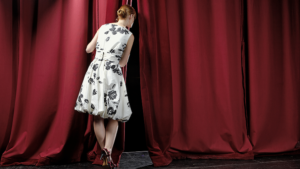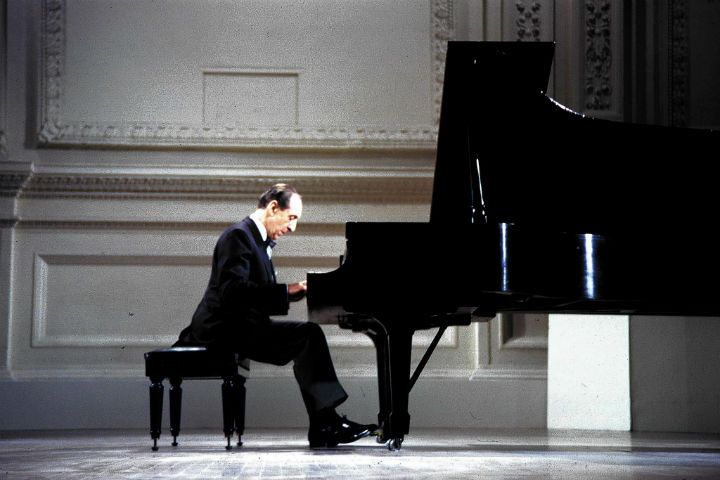In this, the first of a series of articles, I will look at the origins and causes of Performance Anxiety. Subsequent articles will offer strategies for managing anxiety.
 For many musicians, “stage fright” or Performance Anxiety is the fear which cannot, must not, speak its name, and together with injury and illness, it’s a major taboo. We don’t discuss anxiety because we’re not supposed to feel it. As highly trained individuals, musicians are supposed to sweep onto any stage, large or small, and perform with confidence, poise, and musical imagination, never betraying the slightest hint of nerves. As with injury, anxiety is often kept hidden and not discussed because sufferers fear (that word again) that admitting to it is a sign of weakness which may lead to loss of work and status, and the disapproval of colleagues, teachers, more senior musicians, critics and even audiences.
For many musicians, “stage fright” or Performance Anxiety is the fear which cannot, must not, speak its name, and together with injury and illness, it’s a major taboo. We don’t discuss anxiety because we’re not supposed to feel it. As highly trained individuals, musicians are supposed to sweep onto any stage, large or small, and perform with confidence, poise, and musical imagination, never betraying the slightest hint of nerves. As with injury, anxiety is often kept hidden and not discussed because sufferers fear (that word again) that admitting to it is a sign of weakness which may lead to loss of work and status, and the disapproval of colleagues, teachers, more senior musicians, critics and even audiences.
Brahms: Violin Concerto in D Major, Op. 77 – III. Allegro giocoso, ma non troppo vivace (Baiba Skride, violin; Royal Stockholm Philharmonic Orchestra; Sakari Oramo, cond.)
 It is correct to attribute performance anxiety to fear. But this fear has an ancient origin and is driven less by psychological or emotional factors and more by a natural physiological response to a dangerous situation. This “fight or flight” response (also called hyperarousal, or the acute stress response) was first described in the 1920s by American physiologist Walter Cannon, who recognised a series of rapidly occurring physical reactions which mobilised the body’s resources to deal with danger and threats. To enable the body to react quickly, stress hormones such as cortisol, adrenaline and noradrenaline are released. These hormones are triggered to give the body a boost of energy and increased strength and speed in anticipation of a rapid response to either stay and fight or to flee. This physiological response, which is common to us all, creates the following physical effects, which we may directly associate with Performance Anxiety:
It is correct to attribute performance anxiety to fear. But this fear has an ancient origin and is driven less by psychological or emotional factors and more by a natural physiological response to a dangerous situation. This “fight or flight” response (also called hyperarousal, or the acute stress response) was first described in the 1920s by American physiologist Walter Cannon, who recognised a series of rapidly occurring physical reactions which mobilised the body’s resources to deal with danger and threats. To enable the body to react quickly, stress hormones such as cortisol, adrenaline and noradrenaline are released. These hormones are triggered to give the body a boost of energy and increased strength and speed in anticipation of a rapid response to either stay and fight or to flee. This physiological response, which is common to us all, creates the following physical effects, which we may directly associate with Performance Anxiety:
• Rapid heart rate
• Palpitations
• Nausea (because digestion slows down)
• Ringing in the ears
• Tunnel vision
• Feeling faint
• Sweating
• Trembling or shivering
• Dry mouth
• Hot flushes
The body reacts in the same way to both real and imaginary threats; in a music performance scenario or a life-threatening situation.
Understanding that the physical reaction is common to us all can go some way to managing Performance Anxiety. In fact, this ‘priming’ of the body for action through the release of stress hormones makes one better able to perform under pressure. For the musician, performing is nothing like fighting a sabre-toothed tiger, though for some it can feel as momentous, frightening and difficult, and adrenaline can be used in a positive way to raise our performance, making us “play up” and play with more expression, emotional depth and communication.
However, for many musicians Performance Anxiety goes beyond the physical and stems from psychological and emotional issues which may be deep-seated, often the result of childhood and student experiences such as:
• Domineering, unpleasant or bullying teachers
• Pushy parents and the weight of expectation
• Negative exam or performance experiences
• Negative feedback from tutors and peers
• Self-doubt and imposter syndrome
• Perfectionism
The next article will explore ways in which musicians can manage the physical and psychological symptoms of Performance Anxiety and develop coping strategies to enable them to play with confidence and expression.





